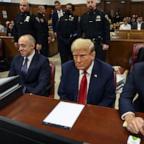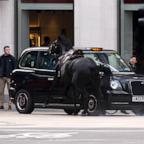Return-to-moon plan gets boost on Capitol Hill
— -- WASHINGTON (AP) NASA's weakened return-to-the-moon program got a lift Tuesday on Capitol Hill.
The head of a special expert panel conceded to Congress that the moon program could work if given enough money. That would mean another $3 billion a year for the program proposed by President George W. Bush.
The plan has been under question because of that panel's dim look at NASA's future and concerns about support from the Obama administration. The panel issued its preliminary summary last week, concluding that there is not enough money to explore space in the current budget, including the moon plan.
"With the resources available, the program I think is fatally flawed," testified Norman Augustine, head of the panel of experts appointed by President Obama.
But congressmen from both parties, including the wife of an astronaut, came to the 5-year-old moon plan's defense. They even attacked the Augustine panel for referring to the plan in the past tense at one point.
"I don't see the logic in scrapping what the nation has spent years and billions of dollars to develop," said House Space Subcommittee chair Gabrielle Giffords, D-Arizona. Her husband is astronaut Mark Kelly, who will command a mission next year.
NASA said it has spent nearly $8 billion already and plans to spend at least $100 billion by 2020.
Giffords said there needs to be compelling reason to change the program. She pressed Augustine for a reason and said she was angry over the "glancing attention" the panel gave to the current program.
Augustine, retired chief executive officer of Lockheed Martin Corp., said the panel put the current program — with the extra funding — as one of several options for the president to choose among. The White House told the panel not to recommend one over the other, he said.
Having already spent lots of money is not reason alone to continue with the Bush plan, Augustine told The Associated Press after the hearing: "the sunken costs argument doesn't carry much weight with us."




